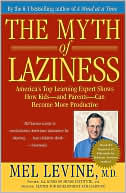Category Books
- Fiction Books & Literature
- Graphic Novels
- Horror
- Mystery & Crime
- Poetry
- Romance Books
- Science Fiction & Fantasy
- Thrillers
- Westerns
- Ages 0-2
- Ages 3-5
- Ages 6-8
- Ages 9-12
- Teens
- Children's Books
- African Americans
- Antiques & Collectibles
- Art, Architecture & Photography
- Bibles & Bible Studies
- Biography
- Business Books
- Christianity
- Computer Books & Technology Books
- Cookbooks, Food & Wine
- Crafts & Hobbies Books
- Education & Teaching
- Engineering
- Entertainment
- Foreign Languages
- Game Books
- Gay & Lesbian
- Health Books, Diet & Fitness Books
- History
- Home & Garden
- Humor Books
- Judaism & Judaica
- Law
- Medical Books
- New Age & Spirituality
- Nonfiction
- Parenting & Family
- Pets
- Philosophy
- Political Books & Current Events Books
- Psychology & Psychotherapy
- Reference
- Religion Books
- Science & Nature
- Self Improvement
- Sex & Relationships
- Social Sciences
- Sports & Adventure
- Study Guides & Test Prep
- Travel
- True Crime
- Weddings
- Women's Studies
The Myth of Laziness » (Reprint)

Authors: Mel Levine
ISBN-13: 9780743213684, ISBN-10: 0743213688
Format: Paperback
Publisher: Simon & Schuster Adult Publishing Group
Date Published: December 2003
Edition: Reprint
Author Biography: Mel Levine
Mel Levine, M.D., is professor of pediatrics at the University of North Carolina Medical School and director of its Clinical Center for the Study of Development and Learning. He is the founder and cochairman of All Kinds of Minds, a nonprofit institute for the understanding of differences in learning, and the author of two previous national best-selling books, A Mind at a Time and The Myth of Laziness. He and his wife, Bambi, live on Sanctuary Farm in North Carolina.
Book Synopsis
With its practical advice and its compassionate tone,
Publishers Weekly
Pediatrician Levine, a developmental-behavioral expert, offers theories on why it's so hard for some teenagers-even bright ones-to succeed in school. "Often these individuals absorb and process information well; they learn but they don't produce," he says, adding, "people say glibly that they are not `living up to their potential.' " Levine prefers the term "output failure" over "laziness." In a series of case studies, he discusses the biological, neurological and psychological factors that may be responsible for "output failure." He focuses on kids challenged by oral and written communication; he believes parents and educators must pay attention to different learning styles rather than simply label a child as lazy. Even fidgeting, according to Levine, may be a plus: "Isn't it odd that kids get criticized for being fidgety when they should be commended for implementing a strategy that significantly elevates their attention?" Despite the thought-provoking theories and discussions of problems such as impairment in the generation of ideas and memory difficulties, only the final chapter, "Cultivating and Restoring Output," offers a broad range of strategies that can be used to remedy such troubles. Still, the advice-e.g., create a home office for kids, document time spent and level of output, adjust expectations-is on target and should help struggling parents. Agent, Lane Zachary. (Jan. 9) Forecast: Levine's last book, A Mind at a Time, just completed a 22-week run on PW's bestseller list. The success of that book should interest conscientious parents in this new one. Copyright 2002 Cahners Business Information.
Table of Contents
Contents
Acknowledgments
Prologue
The Myth of Sisyphus
1 Getting a Mind to Work
2 Russell Strinberg:
A Case of Low Motor Turnout
3 Clint Walker:
Forgetting How to Remember
4 Ginny Caldwell:
Repeated Energy Crises
5 Scott Murray:
Controls Out of Control
6 Darnell Mason:
Words That Can't Describe
7 Roberta Chan:
Deflation Ideation
8 Sharon and Mark Taylor:
Falling Prey to Disarray
9 Output's Inputs
10 The Righting of Writing
11 Cultivating and Restoring Output
Output's Outcomes
Appendixes
A. The Writing Troubleshooter
B. The Story Developer
C. The Report Developer
D. An Output Inventory
Index
Subjects
 Children with Special Needs
Children with Special Needs  Parenting - Special Education
Parenting - Special EducationParenting & Family
 Family - Assorted Topics
Family - Assorted Topics  Family & School
Family & SchoolParenting & Family
 Family - Assorted Topics
Family - Assorted Topics  School - Age Children
School - Age Children
